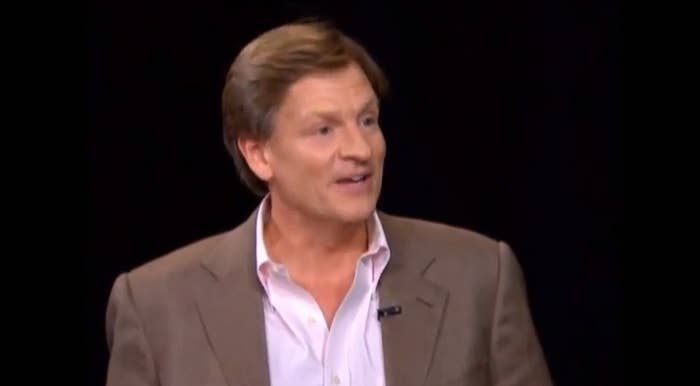
Wing Chau, an investment advisor who sued writer Michael Lewis for his depiction in Lewis' bestselling 2010 crisis chronicle The Big Short, is now facing heat from the Securities and Exchange Commission.
The SEC charged Chau and his firm Harding Advisors Friday afternoon with misleading investors and violating their fiduciary duties in their dealings with investors and the hedge fund Magentar. The SEC says that in a 2006 deal for a collateralized debt obligation (CDO) named Octans I, "Harding consulted Magentar, a hedge fund, in selecting the component parts of the deal, without the knowledge of investors buying into it."
Investors in Octans I were expecting a steady steam of payments from the CDO, but Magnetar had only bought into the riskiest portion of the CDO — the so-called "equity" tranche — as well as bets that the entire thing would fail.
Harding collected $4.5 million in fees on the $1.5 billion deal. The SEC says that Harding and Chau did not disclose to investors that Harding selected the component parts of Octans with the input of Magnetar: "Magnetar exercised significant control over the composition of the portfolio, but this right, among the others granted to Magnetar, was not disclosed to the debt investors in Octans I."
A CDO is a type of debt investment with multiple levels, known as tranches, that pay out to investor at different rates based on their riskiness. The "senior" tranche gets paid first, and has a lower return, while the "equity" tranche gets paid last and accordingly has a higher return. CDOs, especially ones built from residential mortgages, suffered huge losses during the financial crisis while a few hedge funds, like Magnetar, profited from betting against them.
The CDO, which was marketed by Merrill Lynch, which has not been charged, was worth $1.5 billion and consisted mostly of credit default swaps on other securities which were constructed out of residential mortgages. The way the deal was structured, investors would get a stream of payments if the original mortgage-backed-securities were solvent and continued to pay out to their investors.
The SEC says that Magnetar first went to Merrill Lynch to structure and market the deal, and that Merrill and Magentar then agreed that Harding would serve as the "collateral manager" for Octans, the seventh such deal Harding arranged for Merrill.
Chau sued Lewis and hedge fund manager Steve Eisman, one the main subjects in The Big Short in February 2011 for defamation. Chau claimed that Lewis had defamed him for depicting him as someone who, among other things, "was incompetent or reckless in carrying out his responsibilities, and violated his fiduciary duties by putting the interests of 'Wall Street bond trading desks' above those of his investors." A judge ruled against Chau in April of this year, saying Lewis did not defame him. Lewis told BuzzFeed, "I'm afraid I have nothing to add to what the SEC has to say."
"Investors had a right to know that Harding and Chau had chosen to accommodate the interests of others and abandon their own obligations to act in the best interests of the CDO they advised," said George S. Canellos, co-director of the SEC's enforcement division.
Neither Magnetar nor Merrill were charged in connection with the deal. According to ProPublica, Magnetar helped create 28 CDOs based on subprime mortgage backed securities and then "often bet against while also pushing for riskier assets to go inside them." The Wall Street Journal reported in August that the SEC staffers had recommended against filing civil charges against Magnetar.
It is easier to bring civil charges against investment banks or collateral managers because they actively made representations to CDO investors about the collateral contained within them, unlike the hedge funds.
A lawyer representing Chau did not respond to a request for comment.
